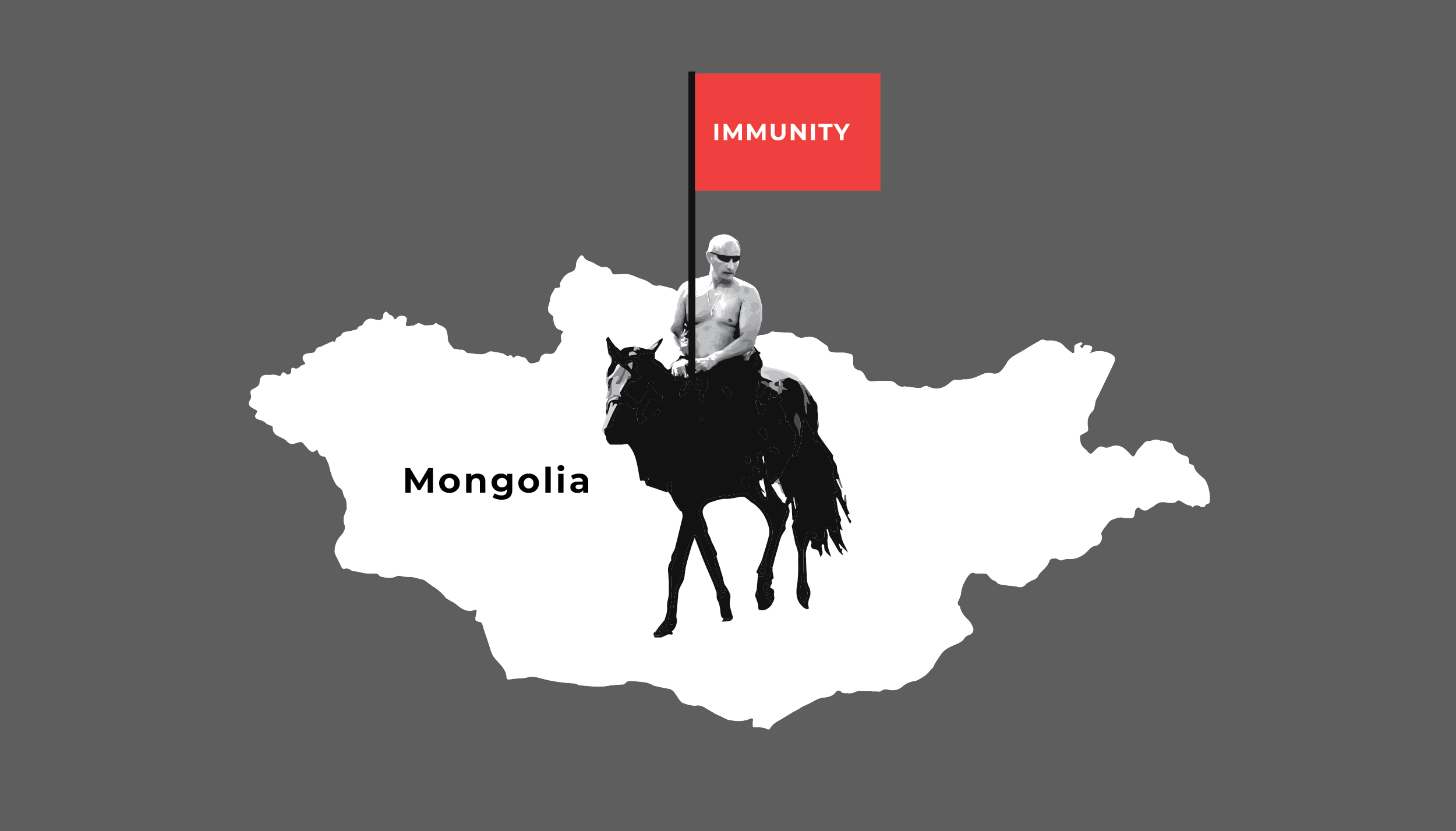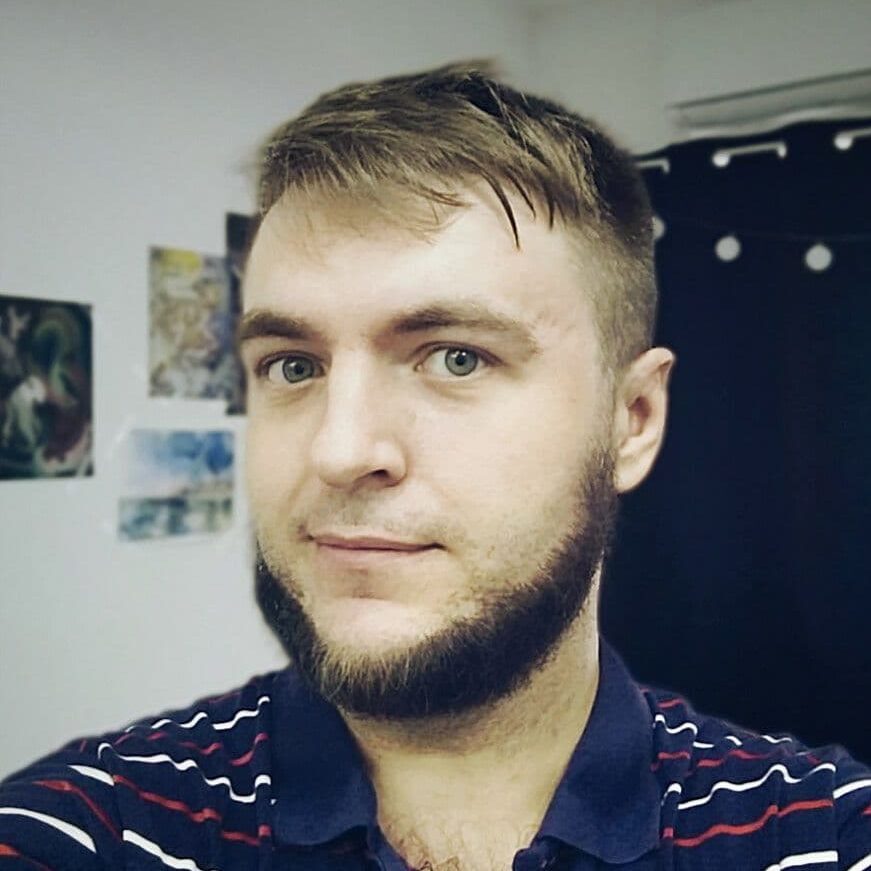Українською читайте тут.
We explore why Mongolia did not arrest Vladimir Putin and how pro-Russian Telegram channels reacted to his visit.
Putin's visit to Mongolia on September 3 marked his first trip to a Rome Statute member state since the International Criminal Court (ICC) issued a warrant for his arrest in March 2023 for his alleged involvement in war crimes during Russia's invasion of Ukraine. Despite its obligations to the ICC, Mongolia did not detain Vladimir Putin during his recent visit to Ulaanbaatar, sparking discussions on pro-Russian Telegram channels.
Between the Obligation and the Capacity of Arrest
As a landlocked country, Mongolia depends on Russia and China for trade and energy supplies. Russia is one of Mongolia’s largest economic partners, controlling part of its fuel supplies. As of 2021, the World Bank estimates China's share in Mongolian imports at about 36%, with Russia's at 28.5%, providing petroleum products, animal feed, food, fertilizers, and more. A spokesperson for the Mongolian government told Politico that Mongolia imports 95% of its petroleum products and more than 20% of its electricity from its immediate neighbors, forcing it to maintain a neutral stance in all diplomatic relations. Given these factors, Mongolia likely signaled to the Russian government in advance that it would not attempt to arrest Putin by agreeing to host his visit. As of September 5, the Mongolian government had not provided an official explanation for its position. It is also worth noting that Mongolia did not condemn Russia’s invasion of Ukraine and was one of 35 countries that abstained from voting on UN resolutions condemning it.
Ukraine’s Ministry of Foreign Affairs, ahead of Putin’s visit, urged Mongolia to comply with the international arrest warrant and hand Putin over to the International Criminal Court in The Hague. Human Rights Watch also issued a statement asserting that Mongolia should either deny Putin entry or arrest him if he set foot on its territory.
"Mongolia will violate its international obligations as an ICC member if it allows Russian President Vladimir Putin to visit without arresting him," said Maria Elena Vignoli, Senior International Justice Counsel at Human Rights Watch.
“Mongolia would be defying its international obligations as an ICC member if it allows Russian President Vladimir Putin to visit without arresting him,” said Maria Elena Vignoli, senior international justice counsel at Human Rights Watch.
Human Rights Watch further called on Mongolia and other nations to follow South Africa’s example. When Putin was scheduled to attend the BRICS summit in Johannesburg in summer 2023, his visit was canceled following public debate and a South African court ruling affirming the country’s obligation to enforce the ICC warrant.
The United States urged Mongolia not to provide a platform for Putin to promote his aggression against Ukraine. However, United States Department of State spokesperson Matthew Miller said that the U.S. government acknowledges the difficult geopolitical and economic situation Mongolia faces, with Russia and China as its neighbors.
"If they [Mongolia] are talking to Russia, they should make it clear that they support the principle of territorial integrity and independence," said the U.S. Department of State spokesperson Matthew Miller.
The ICC and European officials were more reserved in their assessments of Mongolia’s ability to arrest the Russian dictator. ICC spokesperson Fadi El Abdallah noted that Mongolia may not arrest Putin due to specific provisions of the Rome Statute. Exceptions to the obligation to arrest can arise if states are forced to "breach a treaty obligation" with another state or if this would violate "diplomatic immunity of a person or property of a third state."
European Commission spokesperson Nabila Massrali, while urging Mongolia to enforce the ICC warrant, confirmed Mongolia’s right to act in this situation "in accordance with its own interests" and declined to comment on what measures the European Union might take if Mongolia fails to arrest Putin.
Reactions of Russian Authorities and Pro-Russian Telegram Channels
The Russian side responded predictably critically to calls for Putin's arrest based on the ICC warrant. Russia does not recognize the ICC's jurisdiction and considers the court's decision regarding Putin "politically motivated." Russian Foreign Ministry spokesperson Maria Zakharova stated back in the spring of 2023 that the ICC warrant "means nothing to Russia" since it is not a party to the Rome Statute and is not obligated to follow ICC decisions. The Kremlin’s stance is that the arrest warrant for the Russian president holds no legal power in countries that are not signatories to the Rome Statute, and even in many of the signatories if they choose not to enforce it.
Former Russian President Dmitry Medvedev, now Deputy Chairman of the Security Council, took a more aggressive stance. In a post that garnered over 2.6 million views, Medvedev threatened physical violence against both ICC representatives and anyone who attempts to enforce the warrant, derisively calling the warrant a "crappy little paper." Medvedev also dismissed the EU's calls for Mongolia to fulfill its obligations under the Rome Statute, describing them as "legally worthless."
In pro-Russian Telegram channels, Putin's visit to Mongolia was portrayed as a resounding success. These channels broadcast parts of the Russian dictator’s official speech in Ulaanbaatar, where he highlighted Russia's "remembrance of Mongolia's contribution to the fight against Nazism and militarism," reiterating familiar tropes of Russian propaganda related to World War II. The propagandists also tried to paint a negative picture of the stance of the Ukraine’s Ministry of Foreign Affairs and derided former Ukrainian Foreign Minister Dmytro Kuleba. According to a channel with almost 147,000 subscribers, the latter’s calls for Mongolia to uphold international law were weak, while Ukrainian diplomats are delusional. Additionally, it sarcastically referred to Ukraine’s diplomatic efforts as "the last Mongolian warning," implying that Ukraine cannot achieve any meaningful results on its own and relies solely on its international partners to pressure Mongolia.
Before Putin's visit, Russian propaganda also criticized Ukraine’s ratification of the Rome Statute. They claimed that Ukraine did this only to bring its officials "under control" in exchange for "funding from the EU and Japan."
This echoed a longstanding propaganda narrative about Ukraine’s dependence on "external sponsors" and the suggestion that Ukrainian officials would now be even more "motivated" to follow the “West's orders”. Another version presented by Russian propagandists claimed that the ratification, with a seven-year delay on the prosecution of war crimes, was designed to “protect Ukrainian leaders from imprisonment for their crimes”.
A prominent propaganda Telegram channel with over 435,000 followers wrote that the idea of Putin being "unable to leave Russia" had been definitively debunked, and that he could travel freely, with the ICC warrant only having real effect in the West, but not in places like the "Global South."
Additionally, pro-Russian channels mocked the ICC's ability to enforce its arrest warrants. In a channel with over a million subscribers, Putin's visit to Ulaanbaatar was framed as proof that the ICC "doesn't work when needed, making it a sham."
In another post, with more than 261,000 views, propagandists downplayed the ICC’s significance, calling it merely a "tool of influence in the hands of globalists," insinuating that court officials would prefer to "let the issue [of Putin’s arrest] fade away while continuing to collect high salaries." Allegedly, Ukraine was wasting its time by spotlighting and "hyping" Putin’s visit to Mongolia, as Ukraine itself would not benefit from realizing that the world had entered a "new era," where in international relations, “power is more important, and international institutions are losing their significance.” One anonymous Telegram channel even asked mockingly, "How many [military] divisions does the International Criminal Court have?"
In June 2024, Detector Media published a similarly-titled article analyzing how Russian propagandists had previously attempted to discredit the ICC following arrest warrants for Russia's former defense minister, Sergei Shoigu, and Chief of the General Staff, Valery Gerasimov.
Despite Russian officials' attempts to appear as if the ICC warrant does not change their approach to Putin's international travels, in practice, it did have an impact on the Russian leader’s foreign visits, as seen in the case of South Africa. Putin now rarely visits countries where he might face arrest and focuses instead on diplomatic meetings with leaders of nations that support or remain neutral toward Russia. For instance, in June 2024, Putin traveled to North Korea.
The next major test of the international community’s commitment to upholding the principles of international law will be the G20 summit in Brazil on November 18-19, 2024, which the Russian dictator may want to attend. Brazilian President Lula da Silva, speaking at the G20 summit in New Delhi in September 2023, stated that Putin would not be arrested if he attended the Rio summit. However, after facing domestic criticism, Lula shifted responsibility to Brazil’s judiciary. Brazil hopes that the ICC will rule on immunity for heads of state, but this issue has been under consideration since 2007 and is unlikely to be resolved before the G20 summit in Rio.
While Putin's breach of isolation by visiting Mongolia might seem insignificant in comparison with the potential diplomatic win for the Kremlin if Putin appears at the G20 summit in Brazil. Russian propaganda continues to use tools of intimidation and pressure to undermine international law and the ICC’s authority. However, Ukraine’s Ministry of Foreign Affairs remains focused on consolidating efforts to ensure that Mongolia feels the consequences of its decision not to arrest Putin.
Main page illustration credits: Natalia Lobach



